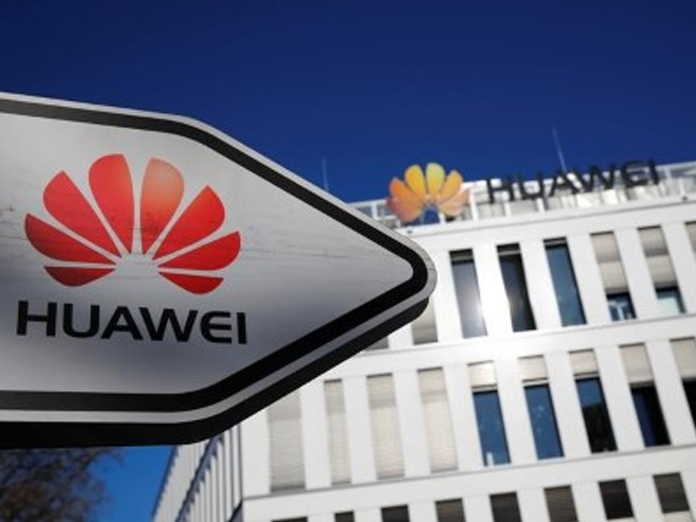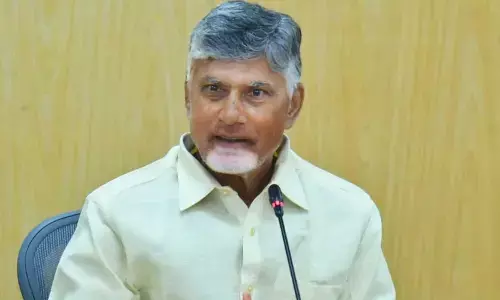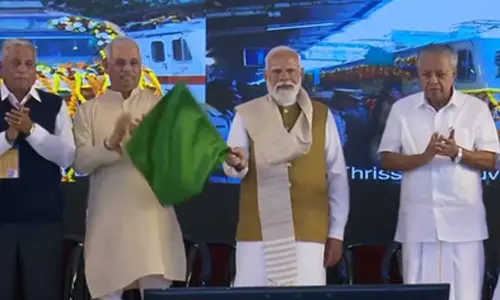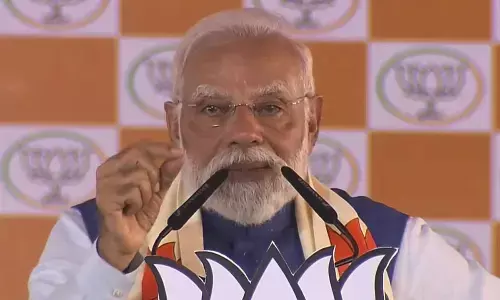Huawei security row overshadows annual telecoms gathering

Leading telecoms companies gather in Barcelona this weekend for their main annual trade fair under the shadow of a bitter clash between the United States and China over network security for the next generation of mobile services
Leading telecoms companies gather in Barcelona this weekend for their main annual trade fair under the shadow of a bitter clash between the United States and China over network security for the next generation of mobile services.
Accusations from US President Donald Trump’s administration that Huawei, the world’s biggest network equipment maker, has enabled Chinese state espionage have shaken the industry and raised broader fears for progress in talks to defuse a rumbling trade dispute.
Aside from hosting snazzy device launches and officials from more than 2,400 companies, mobile industry trade body GSMA is seeking to ward off a ban on Chinese vendors in European markets.
GSMA Marketing Director Andrew Parker said the association would lobby to protect competition in the supply chain.
“The more choice the industry has, the more supply, the better value everyone will get,” Parker said.
“We are going to stick to, and encourage, that line because competition is a good thing for an industry like ours.”
Australia and New Zealand have stopped operators using Huawei equipment in their networks, and the European Commission is considering a de facto ban.
European telecoms executives say this could set back plans to roll out advanced “fifth-generation” 5G technology by at least two years. Industry analysts warn that shutting out Chinese vendors could also trigger retaliation from Beijing.
“What it loses in the West, it will win in the East,” said Bengt Nordstrom, CEO of Swedish industry consultancy Northstream.
“I would expect severe disruption to the telecoms ecosystem – this for me is very similar to the Lehman Brothers situation in 2008,” he added, referring to the Wall Street bank whose collapse triggered the global financial crisis.
A delegation of at least eight US officials is expected in Barcelona, two weeks after Secretary of State Mike Pompeo warned Huawei equipment would jeopardise European allies’ partnerships with the world’s largest economy.
Huawei, an associate member of the GSMA, denies engaging in intelligence work for any government, and its founder has taken to US and British media to emphasise this in recent days.
Any further restriction could spark a race between other network equipment makers to fill the void. Sweden’s Ericsson and Nokia of Finland compete with Huawei, while Korea’s Samsung Electronics is making a big push into the market.
Some operators fret that, were Huawei to be excluded from the process, Europe would slip behind other countries, especially if firms had to rip out parts of existing networks.
Another fundamental question the industry has yet to answer is whether 5G, which promises to link up everything from vehicles to household devices, will end up being profitable.
“The jury is still out on: is it going to be a consumer player, are there use cases that are going to demand 5G at an economic level that makes sense?” said Sam Evans, a partner at TMT consultancy and investment firm Delta Partners.
But enough testing should now have been done to “start to see at least in the short term if it’s viable”, Evans added.
Alongside febrile politics, telecoms firms face the search for revenue growth as their bread-and-butter connectivity becomes ever less profitable.
Carmakers, data analytics firms and online retailers will rub shoulders with operators and unveil partnerships in fields ranging from transport to gaming and even medical surgery.
Applications for the “Internet of Things” – attaching chips that can send and receive data to everyday objects - will include sensors to prevent leaks in municipal water systems and other ways to improve city life.
After a dismal year for smartphones, with sales falling for five consecutive quarters, companies are also trying to reignite consumer interest with upgraded gadgets.
Huawei, which overtook Apple to become the world’s second-biggest smartphone seller last year, will show off its latest devices at the congress.
Market leader Samsung unleashed on the world on Wednesday a nearly USD 2,000 smartphone with 5G connection, the world’s first flexible screen and six cameras.
The device “answers skeptics who said that everything that could be done has been done,” DJ Koh, chief executive of Samsung Electronics, told a launch event in San Francisco.














